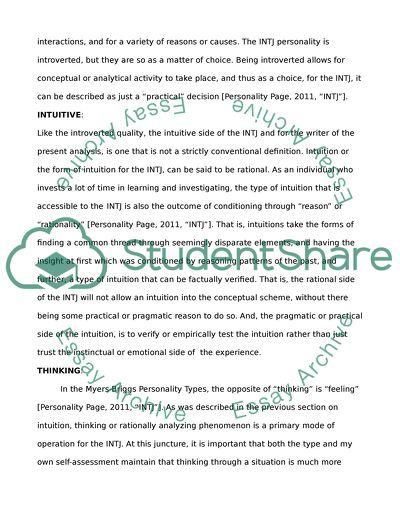Cite this document
(“Myers-Briggs Type Indicator Essay Example | Topics and Well Written Essays - 1000 words”, n.d.)
Retrieved from https://studentshare.org/social-science/1427302-personality-trait
Retrieved from https://studentshare.org/social-science/1427302-personality-trait
(Myers-Briggs Type Indicator Essay Example | Topics and Well Written Essays - 1000 Words)
https://studentshare.org/social-science/1427302-personality-trait.
https://studentshare.org/social-science/1427302-personality-trait.
“Myers-Briggs Type Indicator Essay Example | Topics and Well Written Essays - 1000 Words”, n.d. https://studentshare.org/social-science/1427302-personality-trait.


